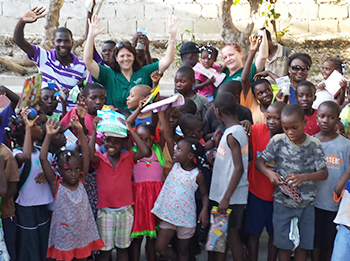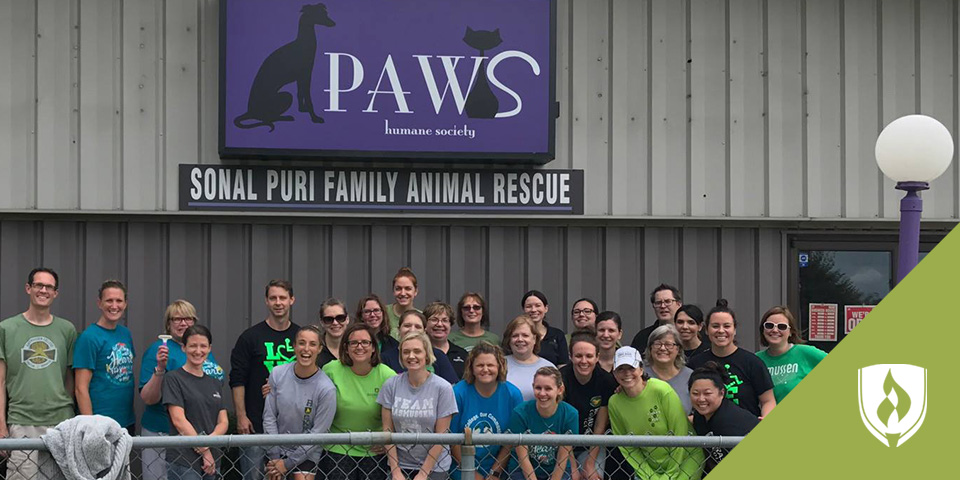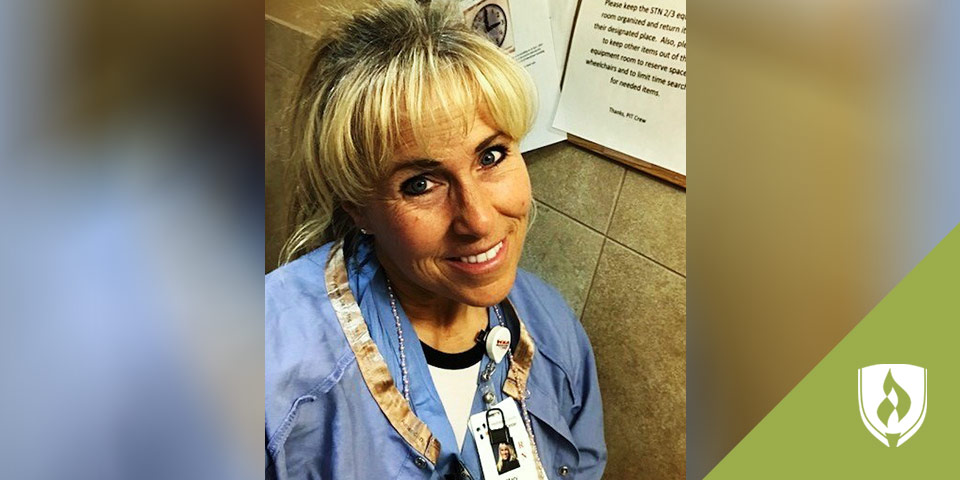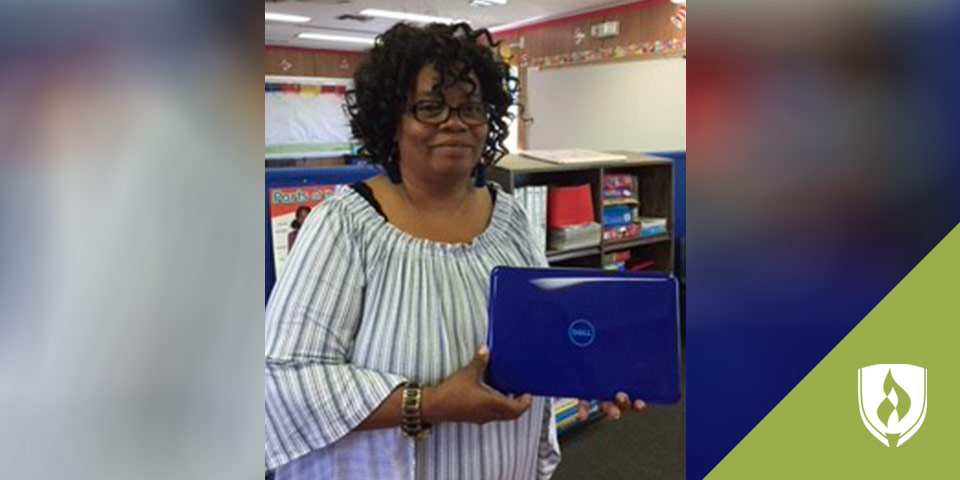A handful of medical assistants from the Ocala campus traveled to Haiti for a week in late 2014 to help teach CPR techniques to a local nursing school and to visit hospitals, clinics and an orphanage.

The students held fundraisers at the Rasmussen College Ocala campus, and raised about $200 each to be used toward airfare, food and room and board for the week. They were responsible for covering the rest of the expenses on their own. Two GatorCPR employees also accompanied the students on this trip. The company offers CPR and safety training.
Why Haiti?
Chris Wichelman, medical assistant program coordinator, did a mission trip to Haiti when she was in nursing school, which inspired her to do the same with the students at the Ocala campus. Wichleman worked out the logistics, and Team Haiti 2014 was born.
Many parts of Haiti are still feeling the devastation from the earthquake and two tsunamis that rocked the country in 2010, killing more than 200,000 people and damaging the region. Mission groups visit Haiti often to help out where they can, often visiting schools and orphanages.
During this trip, the medical assistant students were afforded the opportunity to connect with Haitian nursing students and stay at the dorm at Faculté des Sciences Infirmières de l’Université Episcopale (FSIL) in Léogâne, Haiti. Wichelman said there was a significant language barrier—Haitians speak a dialect of Creole influenced by French, Spanish, Portuguese and West African languages—but they had a French translator to help.
Helping out in Haiti
The students had a busy week in Haiti. They visited an orphanage and handed out toys, games, pens, pencils, notebooks and toothbrushes. They also mowed lawns, pulled weeds and hauled rocks.
“The orphanages were [very poverty-stricken],” said Horecia Williams, a Rasmussen College Ocala campus medical assistant student. “There were livestock not far from where the children bathed. The experience definitely taught me not to take anything for granted, and I wanted to do as much as I could to help.”

Another day they visited a hospital and a few clinics, including a tuberculosis clinic, to see how patients were treated. During their visit to one OB clinic the students witnessed the conclusion of a birth.
“I think it was shocking for some of the students … the women in labor were walking around in dirt outside,” Wichleman said.
Williams admitted to being shocked. She said the birthing clinics are open-air facilities that use mosquito netting and hospital rooms are shared by up to seven people at a time.
“It was a huge eye-opener because of everything we are afforded here,” Williams said. “It made me really grateful.”
A large portion of the trip was meant to help the second- and third-year Haitian nursing students become certified in CPR. The GatorCPR employees helped teach and certify the Haitian students.
Mission groups travel to FSIL 2-3 times a month so the Haitian nursing students were used to having visitors. Since they have fewer resources at their school, there may be times when they don’t have someone to teach a course, which could ultimately push back graduation. Members of mission groups teach their classes to help prevent that from happening.
Williams described the classes as large (more than 16 students per class) and the students as very hard workers.
“Every waking moment the Haitian nursing students had was spent studying … it put me to shame,” Williams said. “It’s amazing how studious they are.”
The Haitian students go to school fulltime Monday through Friday from 7 a.m. until 5 p.m. and eat three meals a day on campus. Students aren’t allowed to leave the campus after 7 p.m. but they can leave on the weekends. The biggest takeaway
The biggest takeaway
The students truly appreciated the resources we have in the United States, as one of the biggest realizations they had was how many resources the Haitians lacked.
Williams said the experience taught her to not take anything for granted. She said she knew the area was impoverished but seeing it with her own eyes was a whole other story.
“You see people bathing in the streets, selling food with flies and vermin around it, and you see people digging for food in the streets,” Williams said. “I think the Haitians would be shocked to see all the amenities we have [in the U.S.].”
Wichelman loved seeing the students so excited to go to Haiti. She also having the ability to share the experience together.
“I believe the Haitians helped our students realize there’s more than what is in front of them,” Wichelman said.
Plans to go back
Plans are already in the works to return to Haiti in 2015. Wichleman is working with the dean at FSIL, and is hoping they’ll be able to take more faculty and students—including those studying nursing. She hopes they’ll be allowed hands-on opportunities to help and serve Haitian patients on the next trip.
As for Williams, she hopes to return to the orphanage in 2015 to help immunize children and work with the nursing students during their clinical rotations. For now, she won’t forget the things she saw or the feelings she felt during that first trip to Haiti.
Interested in a career in healthcare? Visit the medical assisting page to learn more about the program.





